Hyundai i30 Wagon vs Vauxhall Astra – Performance, range & efficiency compared
Both models have their strengths – but which one suits you more?
Compare performance, efficiency, price and space directly: Hyundai i30 Wagon or Vauxhall Astra?
Costs and Efficiency:
When it comes to price and running costs, the biggest differences usually appear. This is often where you see which car fits your budget better in the long run.
Hyundai i30 Wagon has a slight advantage in terms of price – it starts at 24800 £, while the Vauxhall Astra costs 25200 £. That’s a price difference of around 343 £.
Fuel consumption also shows a difference: Vauxhall Astra manages with 2.20 L and is therefore clearly more efficient than the Hyundai i30 Wagon with 5.70 L. The difference is about 3.50 L per 100 km.
Engine and Performance:
Power, torque and acceleration are the classic benchmarks for car enthusiasts – and here, some clear differences start to show.
When it comes to engine power, the Vauxhall Astra has a noticeable edge – offering 225 HP compared to 140 HP. That’s roughly 85 HP more horsepower.
In acceleration from 0 to 100 km/h, the Vauxhall Astra is distinct quicker – completing the sprint in 7.50 s, while the Hyundai i30 Wagon takes 9.80 s. That’s about 2.30 s faster.
In terms of top speed, the Vauxhall Astra performs somewhat better – reaching 235 km/h, while the Hyundai i30 Wagon tops out at 197 km/h. The difference is around 38 km/h.
There’s also a difference in torque: Vauxhall Astra pulls evident stronger with 360 Nm compared to 253 Nm. That’s about 107 Nm difference.
Space and Everyday Use:
Beyond pure performance, interior space and usability matter most in daily life. This is where you see which car is more practical and versatile.
Both vehicles offer seating for 5 people.
In curb weight, Hyundai i30 Wagon is barely noticeable lighter – 1316 kg compared to 1341 kg. The difference is around 25 kg.
In terms of boot space, the Hyundai i30 Wagon offers noticeable more room – 602 L compared to 422 L. That’s a difference of about 180 L.
In maximum load capacity, the Hyundai i30 Wagon performs somewhat better – up to 1650 L, which is about 311 L more than the Vauxhall Astra.
When it comes to payload, Hyundai i30 Wagon hardly perceptible takes the win – 524 kg compared to 509 kg. That’s a difference of about 15 kg.
Who comes out on top?
Overall, the Vauxhall Astra shows itself to be outperforms in nearly all aspects and secures the title of DriveDuel Champion.
It convinces with the more balanced overall package and proves to be the more versatile choice for everyday use.
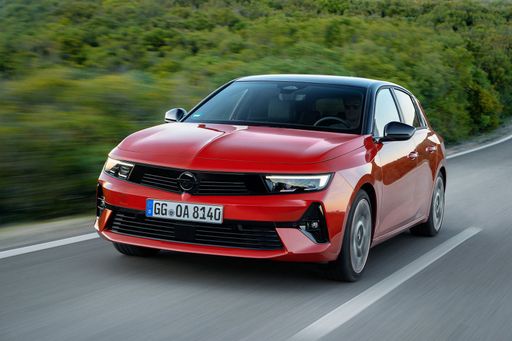
Vauxhall Astra
Hyundai i30 Wagon
The Hyundai i30 Wagon offers a blend of practicality and style, making it a popular choice for families and those in need of extra space. Its sleek exterior and comfortable interior provide a pleasant driving experience, while advanced safety features ensure peace of mind on the road. The i30 Wagon stands out with its impressive fuel efficiency and reliability, catering to both urban and rural lifestyles.
details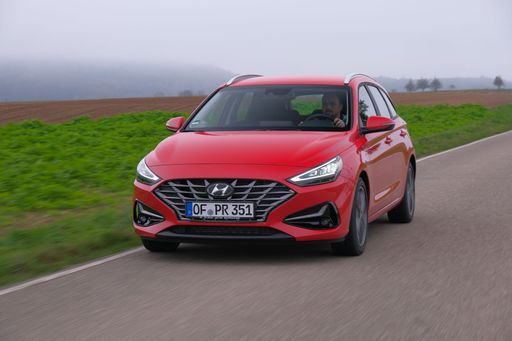 @ hyundai.news
@ hyundai.news
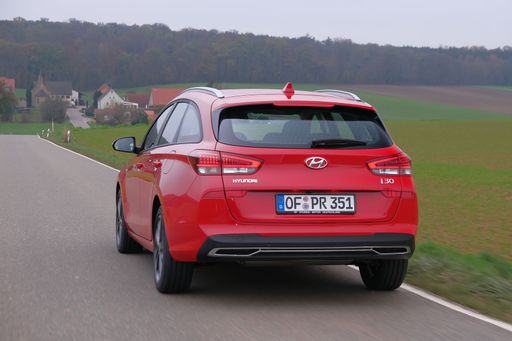 @ hyundai.news
@ hyundai.news
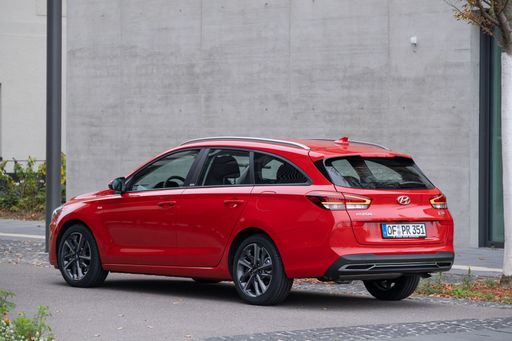 @ hyundai.news
@ hyundai.news
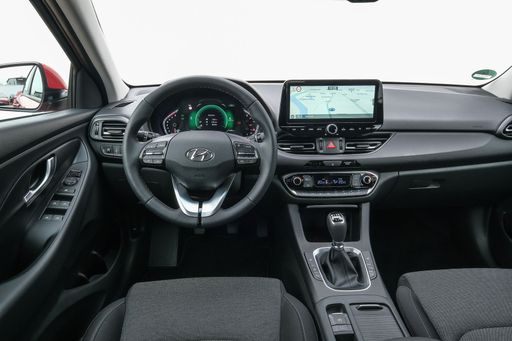 @ hyundai.news
@ hyundai.news
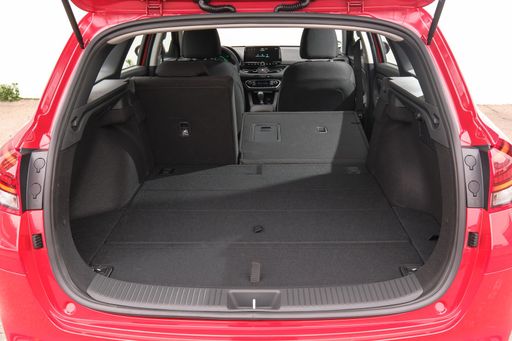 @ hyundai.news
@ hyundai.news
Vauxhall Astra
The Opel Astra exudes a sleek and modern design, making it a standout choice in the compact car segment. Its interior is thoughtfully crafted, providing both comfort and cutting-edge technology for an enhanced driving experience. The vehicle is also celebrated for its efficient performance, adeptly balancing power with fuel economy to suit urban and long-distance journeys alike.
details @ www.media.stellantis.com
@ www.media.stellantis.com
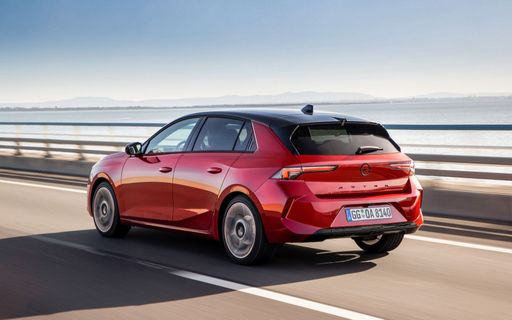 @ www.media.stellantis.com
@ www.media.stellantis.com
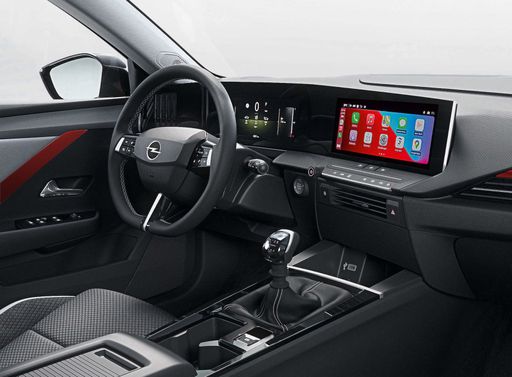 @ www.media.stellantis.com
@ www.media.stellantis.com

|

|
|
|
|
Costs and Consumption |
|
|---|---|
|
Price
24800 - 30100 £
|
Price
25200 - 40500 £
|
|
Consumption L/100km
5.7 - 6 L
|
Consumption L/100km
2.2 - 6 L
|
|
Consumption kWh/100km
-
|
Consumption kWh/100km
15.40 kWh
|
|
Electric Range
-
|
Electric Range
82 - 419 km
|
|
Battery Capacity
-
|
Battery Capacity
51 kWh
|
|
co2
130 - 136 g/km
|
co2
0 - 135 g/km
|
|
Fuel tank capacity
50 L
|
Fuel tank capacity
42 - 52 L
|
Dimensions and Body |
|
|---|---|
|
Body Type
Estate
|
Body Type
Hatchback
|
|
Seats
5
|
Seats
5
|
|
Doors
5
|
Doors
5
|
|
Curb weight
1316 - 1461 kg
|
Curb weight
1341 - 1736 kg
|
|
Trunk capacity
602 L
|
Trunk capacity
352 - 422 L
|
|
Length
4585 mm
|
Length
4374 mm
|
|
Width
1795 mm
|
Width
1860 mm
|
|
Height
1475 mm
|
Height
1432 - 1488 mm
|
|
Max trunk capacity
1650 L
|
Max trunk capacity
1268 - 1339 L
|
|
Payload
439 - 524 kg
|
Payload
414 - 509 kg
|
Engine and Performance |
|
|---|---|
|
Engine Type
Petrol, Petrol MHEV
|
Engine Type
Petrol, Diesel, Electric, Petrol MHEV, Plugin Hybrid
|
|
Transmission
Manuel, Automatic
|
Transmission
Manuel, Automatic
|
|
Transmission Detail
Manual Gearbox, Dual-Clutch Automatic
|
Transmission Detail
Manual Gearbox, Automatic Gearbox, Reduction Gearbox, Dual-Clutch Automatic
|
|
Drive Type
Front-Wheel Drive
|
Drive Type
Front-Wheel Drive
|
|
Power HP
100 - 140 HP
|
Power HP
130 - 225 HP
|
|
Acceleration 0-100km/h
9.8 - 13.3 s
|
Acceleration 0-100km/h
7.5 - 10.6 s
|
|
Max Speed
178 - 197 km/h
|
Max Speed
170 - 235 km/h
|
|
Torque
172 - 253 Nm
|
Torque
230 - 360 Nm
|
|
Number of Cylinders
3 - 4
|
Number of Cylinders
3 - 4
|
|
Power kW
74 - 103 kW
|
Power kW
96 - 165 kW
|
|
Engine capacity
998 - 1482 cm3
|
Engine capacity
1199 - 1598 cm3
|
General |
|
|---|---|
|
Model Year
2024
|
Model Year
2023 - 2025
|
|
CO2 Efficiency Class
D, E
|
CO2 Efficiency Class
D, A, C, B
|
|
Brand
Hyundai
|
Brand
Vauxhall
|
What drivetrain options does the Hyundai i30 Wagon have?
Available configurations include Front-Wheel Drive.
The prices and data displayed are estimates based on German list prices and may vary by country. This information is not legally binding.
